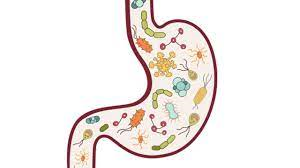Inulin and fructooligosaccharides (FOS) are two of the most well known and well-researched prebiotics, and while both are naturally occurring in small amounts in plants, additional support with these can be beneficial when trying to reach a higher intake. Prebiotics pass through the digestive tract untouched until they reach the microbiome, where they promote the growth of friendly bacteria in the gut to encourage healthy digestion and immune response.  Having a healthy balance of beneficial bacteria in the gut is key for not only our digestive health, but also our immune function, mental health, hormonal health and metabolic health.
Having a healthy balance of beneficial bacteria in the gut is key for not only our digestive health, but also our immune function, mental health, hormonal health and metabolic health.
The friendly bacteria feed on these prebiotics and in return produce lactic acid and short chain fatty acids (SCFAs), such as butyrate, which help to maintain the appropriate pH in the gut, and integrity of the intestinal lining. The main difference between inulin and FOS is their structure, inulin has a slightly longer structure than FOS which alters where in the gut they are broken down and which bacteria feed on them, though both are particularly beneficial for bifidobacterium. In addition to this, inulin and FOS may also support regular bowel movements by absorbing water in the intestines to form a more consistently shaped stool, aiding constipation or diarrhoea relief. Several studies also show inulin may support healthy weight loss, normal blood glucose control and manage mineral absorption of bones.
Sources
